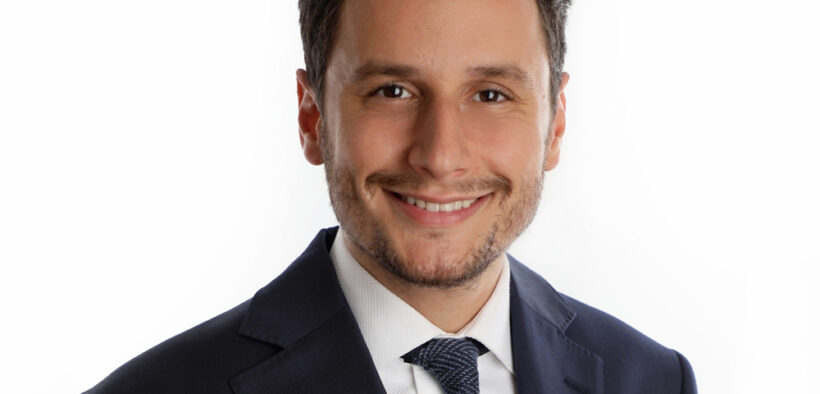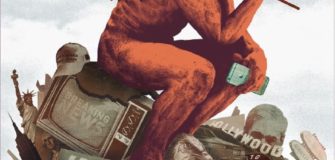Russia in Transition: Implications for Canada and the International Order

Following the election of Donald Trump to the White House, Canada’s then newly appointed Foreign Affairs Minister Chrystia Freeland made a commitment to defending the “rules-based international order” (RBIO) one of the staples of her tenure. The meaning of this term, however, remains a matter of interpretation. Against the backdrop of resurgent great power rivalry in recent years, it has often been used interchangeably with the even more ambiguously defined “liberal international order” (LIO). To understand the sources of – and identify possible solutions to – today’s global uncertainty and instability, a conceptual clarification is in order.
For many in the West, the RBIO represents an entire package of institutions, practices and commitments, ranging from advancing international cooperation and multilateralism to promoting values such as democracy and human rights. However, the gradual rise of the international human rights movement in the postwar era was driven largely by the non-West, linked to the process of decolonization. In other words, although human rights are “baked into” the current global order as a core principle, they are in many ways an expression of human equality on the basis of national sovereignty. This is contrary to the view that Western leadership, democracy promotion and interventionism are the prime guarantors of an increasingly progressive world. There is therefore somewhat of a tension between the parts of the order that emphasize inter-state cooperation and those that privilege values promotion.
The LIO, for its part, has been known to be much more difficult to situate. Some insist that it was born out of the ashes of World War II and designed to uphold global peace and security, but this would imply that the illiberal Soviet Union was one of its founding members, in addition to the British and French who were then not entirely ready to give up their colonial empires. In fact, one finds few – if any – references to the term until several decades later. A more recent interpretation is that the LIO was designed to create a world safe for liberal democracies. If true, this might imply that contestation and rivalry between liberal and non-liberal states is an inherent feature of the contemporary order.
Following the end of the Cold War, there was an attempt to universalize the liberal international order – to create, in effect, the first-ever liberal world order – whose failure was marked by the 2013-14 Ukraine crisis and the subsequent resumption of great power rivalry.
A more reliable account would posit the simultaneous existence of the LIO and the RBIO as separate but overlapping entities. Unlike the RBIO, which is global in scope and places an emphasis on rules-based cooperation through international institutions, treaties and regimes, the LIO does not enjoy universal support and is rooted in a structure of Western economic, military and ideological pre-eminence. Following the end of the Cold War, there was an attempt to universalize the LIO – to create, in effect, the first-ever liberal world order – whose failure was marked by the 2013-14 Ukraine crisis and the subsequent resumption of great power rivalry.
The end of the Cold War was supposed to presage Russia’s “return to Europe”, having been cut off by the Iron Curtain from the continent in which it had played a centuries-long integral role. Accordingly, in the 1990s Russia’s economy rapidly embraced neoliberalism through “shock therapy” while its political institutions and constitution adopted a nominally liberal character. While certain elements of this liberal legacy persist, Russia grew increasingly disgruntled with the LIO throughout the post-Cold War period, with the expansion of NATO effectively excluding it from the new European order.
Particularly since the 2011-12 protests in Russia and the subsequent onset of the Ukraine crisis, Moscow appears to have decided to challenge the LIO outright. This began with the embrace of a more politically and culturally conservative discourse, designed to buttress the foundations of the regime’s legitimacy. Now, having failed to complete the transformation of the ruling elite into a full-fledged national governing class, Russian President Vladimir Putin’s recently proposed constitutional reforms aim to enhance the regime’s resilience and durability, effectively positing Putinism as an alternative to the liberal West. Since liberalism and the LIO have become quasi-synonymous with Western hegemony, this only stands to entrench the state of rivalry between Russia and the West even further.
Challenging the reach and scope of the LIO is not synonymous with opposing the RBIO in its entirety. But since the prevailing view in the West is that liberal values form an integral part of the RBIO, the perception is that a fundamental contest over the future of global order has begun. In any event, outright competition between great powers is certain to strain the foundations of the RBIO, even if it is not the direct target of any of the players involved. This state of affairs, in which Moscow feels forced to resort to spoiler tactics to advance its interests, further enhances the likelihood that Western capitals will conclude that Russia is not a trustworthy interlocutor and that a reset in relations is impossible. The result is a vicious cycle of confrontation with no clear endgame.
Outright competition between great powers is certain to strain the foundations of the rules-based international order, even if it is not the direct target of any of the players involved.
With the Western-led LIO having failed to become synonymous with global order itself, one of the key questions going forward concerns what sort of international order can accommodate the political pluralism found in today’s world. This, in turn, brings important implications for Canadian foreign policy. If Canada’s rhetorical defence of the RBIO is aimed primarily at vindicating the Western position and version of events, then it will be placing itself on the sidelines of this central international debate, while doing little to halt the erosion of core elements of global cooperation and multilateralism. Rather, Ottawa must identify the areas where it is best suited to collaborate constructively with all parties and bridge the gap between idealism and pragmatism.
Canada has long thought of itself as a “middle power”, an identity that now underpins its support for and dependence on the RBIO. Although it remains true that Canada has a vital interest in the survival of a rules-based international framework, this form of self-identification has become outdated. In a shifting global landscape, there are only term-setters and the rest. Canada must decide to which group it wants to belong.





